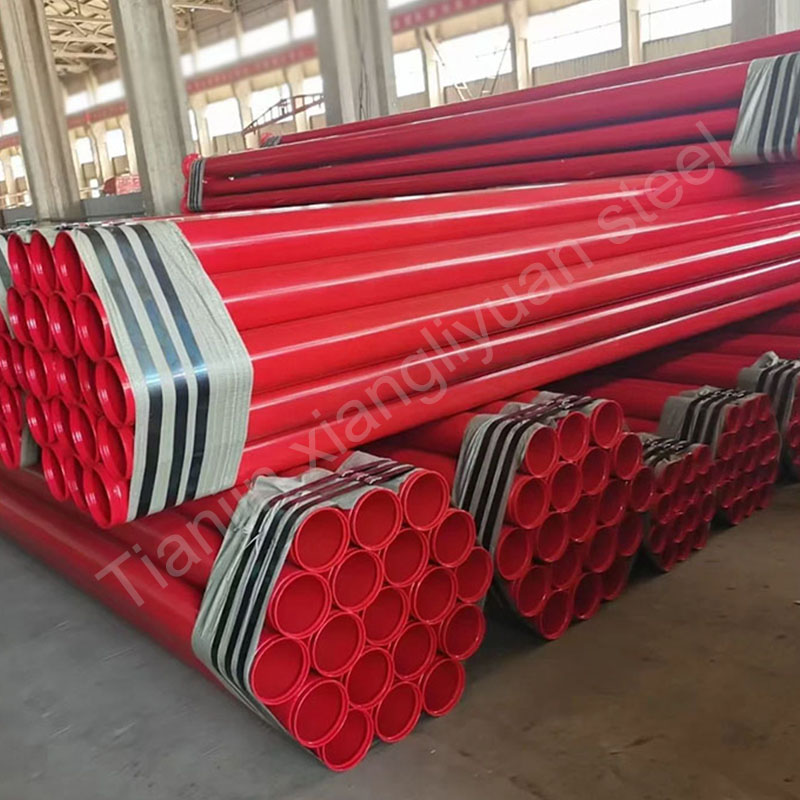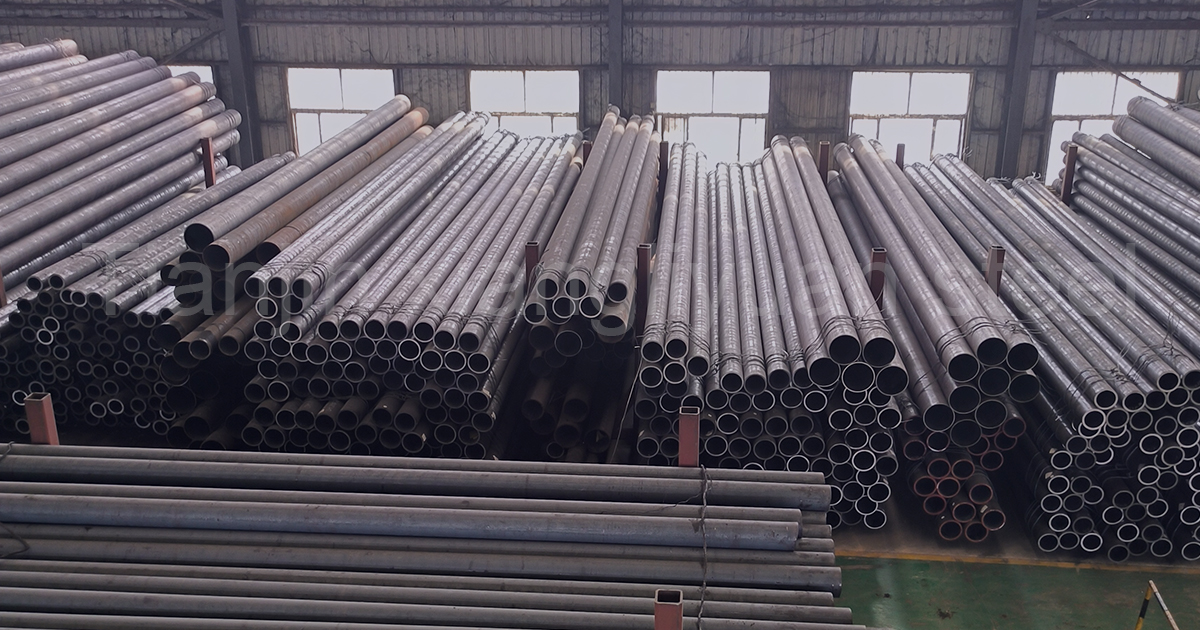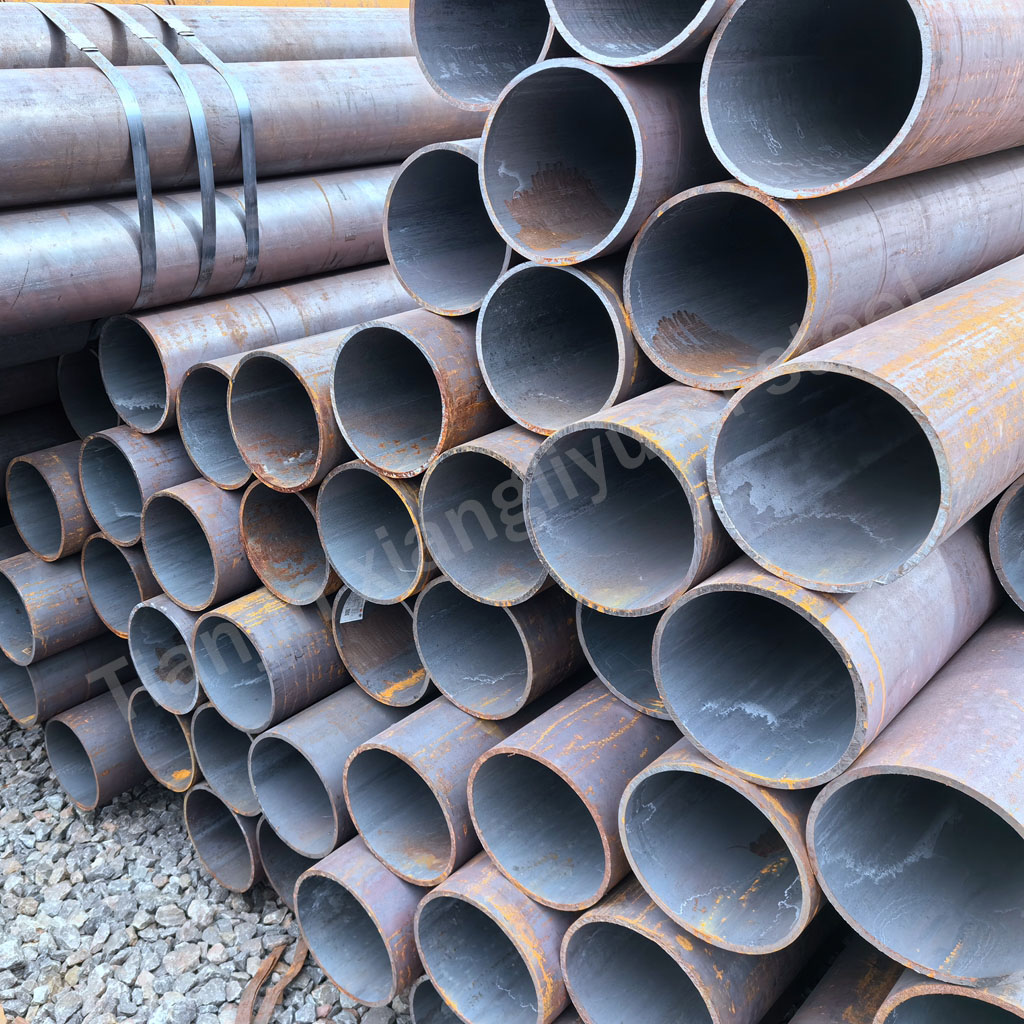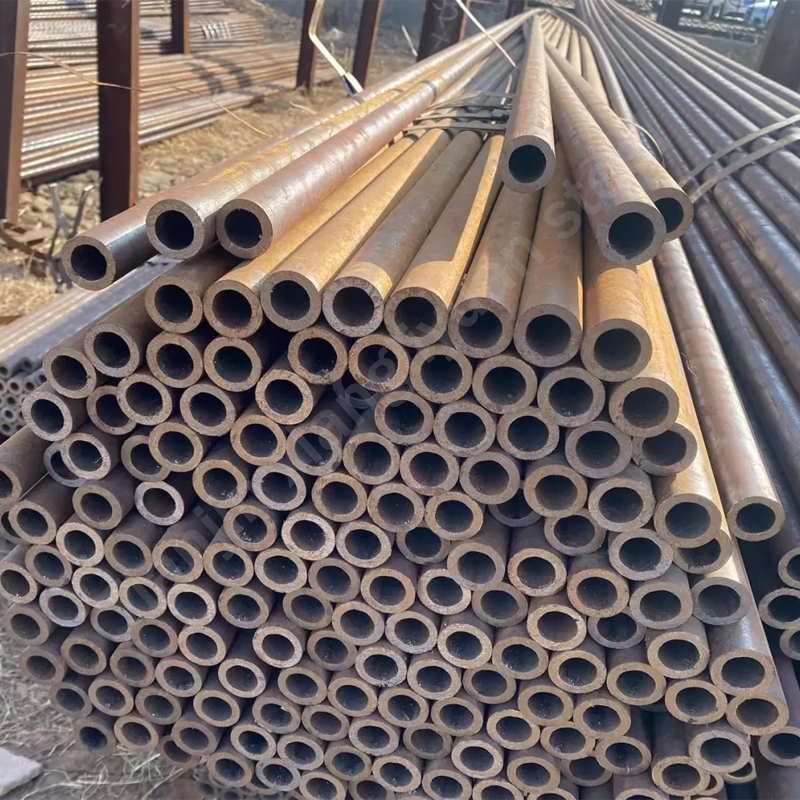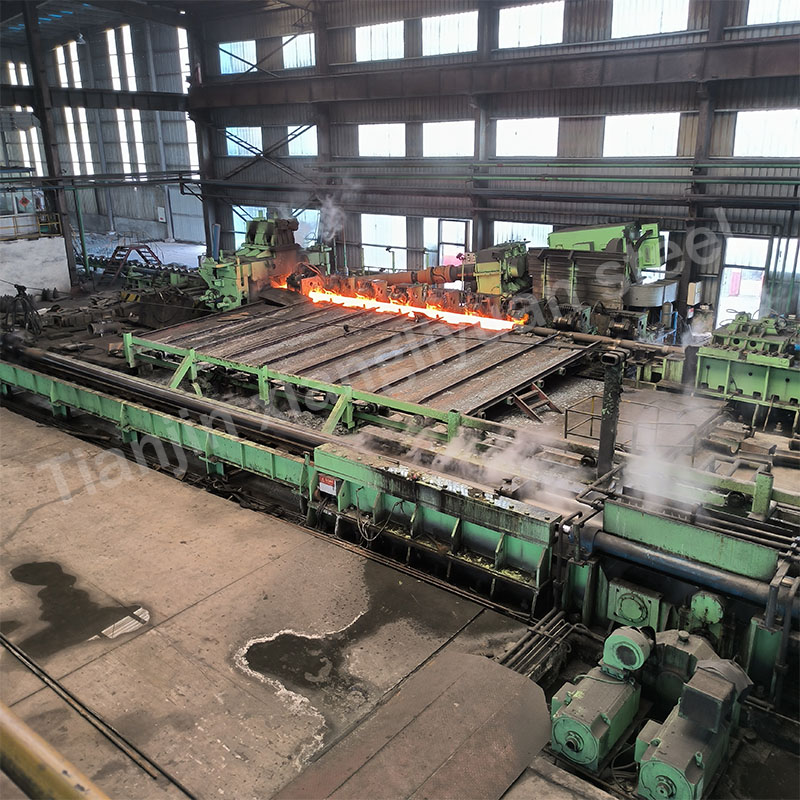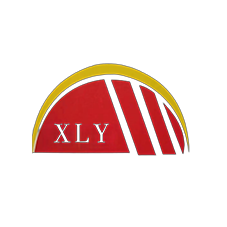Coated steel pipe refers to a steel pipe with one or more layers of coating added to the surface of ordinary steel pipe to improve its performance. Coated steel pipe combines the strength of steel and the characteristics of surface coating and is widely used in various fields. The main purpose of the coating is to prevent corrosion, improve wear resistance, enhance chemical resistance, and extend its service life.
The base material of coated steel pipe is mainly carbon steel, stainless steel or alloy steel. The specific material selection depends on the use environment and requirements. Common steel grades include:
1. Carbon steel:
– ASTM A53
– A106
– Q235B (China)
2. Alloy steel:
– AISI 4140
– ASTM A335 (P11, P22)
3. Stainless steel:
– 304
– 316L
– 321
Production and processing technology
The production of coated steel pipe includes the following main steps:
1. Steel pipe manufacturing:
The base steel pipe can be manufactured by seamless or welding. Seamless steel pipes are usually hot rolled or cold drawn, while welded steel pipes are completed by resistance welding or submerged arc welding.
2. Surface pretreatment:
The steel pipe needs to be cleaned before coating, including sandblasting or pickling to remove the surface oxide layer and impurities.
3. Coating process:
– Internal and external anti-corrosion coating: Polyethylene (PE), epoxy resin or other anti-corrosion materials are applied by melt dipping or spraying.
– Internal and external galvanizing: Corrosion-resistant coating is formed by hot dip galvanizing or electrogalvanizing.
– Spraying or baking varnish: Spraying paint on the surface of steel pipes, usually for rust prevention and aesthetic needs.
4. Curing and inspection:
After coating, curing treatment is required to ensure the adhesion and uniformity of the coating. Finally, various inspections such as ultrasonic testing and corrosion resistance testing are required to ensure quality.
Common coating types
1. Epoxy resin coating:
Provides excellent chemical corrosion resistance and high-strength adhesion, suitable for high temperature and corrosive media.
2. Polyethylene (PE) coating:
It has good wear resistance and corrosion resistance, and is mostly used for water pipes.
3. Polypropylene (PP) coating:
It has excellent high temperature resistance and UV resistance, and is suitable for buried pipes.
4. Hot-dip galvanized coating:
It provides basic anti-rust ability and is often used for ordinary building pipes.
5. Plastic coating:
Using hot melt or dipping technology, a plastic layer is coated on the surface of the pipe, which is widely used in fire protection or water supply and drainage fields.
International and domestic standards
The standards for coated steel pipes vary from country to country, mainly including:
– China: GB/T 23257, GB/T 13793
– USA: ASTM A106, ASTM F1043
– Europe: EN 10224, EN ISO 21809
– Japan: JIS G3466
– International: ISO 9001
Application areas
1. Construction and water supply:
Coated steel pipes are widely used in water supply and drainage, heating and fire protection systems.
2. Oil and gas:
Commonly used to transport highly corrosive oil, natural gas and chemical media.
3. Municipal engineering:
Used for sewage treatment and urban water supply networks.
4. Power and communications:
Coated steel pipes are used as cable protection pipes to provide corrosion resistance and durability.
5. Marine engineering:
Coated steel pipes are used in offshore platform and dock construction to resist seawater erosion.
Advantages
1. Extended life:
The coating can effectively protect the substrate from corrosion and wear.
2. Reduced maintenance costs:
The long-term performance of coated steel pipes reduces the need for frequent replacement and maintenance.
3. Wide adaptability:
According to different types of coatings, it can meet the needs of diverse use environments.
4. Environmental protection:
Advanced coating materials can reduce the replacement frequency of pipelines, reduce resource waste and pollution.
5. Economical:
Compared with expensive stainless steel materials, coated steel pipes have lower costs while having similar performance.
Coated steel pipes have become the preferred material for many industrial and civil projects due to their excellent performance, wide applicability and economic benefits. In the future, with the continuous advancement of technology, the performance and application areas of coated steel pipes will be further expanded, providing efficient and reliable pipe solutions for more fields.

